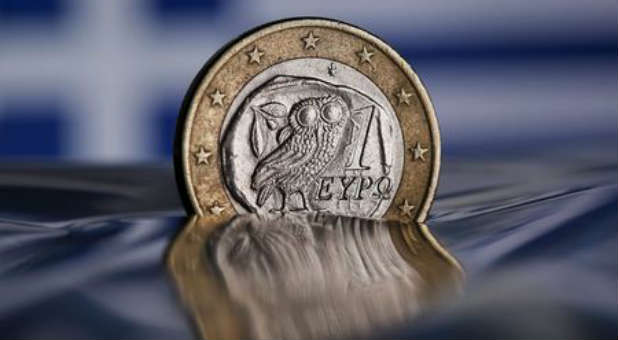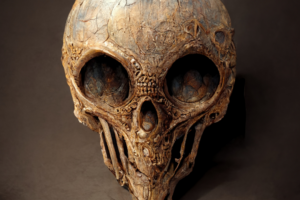With my Greek background I have been watching the unfolding drama of Greece with a mixture of confusion, concern and compassion. I had perhaps naïvely assumed that my failure to understand what was going on was because I’m not an economist but I now realize that even economists don’t understand either!
It did, however, cross my mind to wonder what the greatest of the ancient Greeks, Socrates, would have made of it all. A brief introduction: Socrates (born around 470 B.C., died 399 B.C.) was an Athenian who is credited as one of the founders of Western philosophy. Although nothing he wrote has survived, we know quite a lot about him because of the sympathetic portrayal of him by his students, such as Plato. Socrates is particularly valued because of the way that, instead of simply meditating on an issue, he would ask challenging questions to himself and others to try to determine where the truth lay. Ultimately he seems to have irritated the leaders of Athens sufficiently that they forced him to kill himself by drinking hemlock. His courage and commitment to the truth has long endeared him to the world.
So what would Socrates do? Let me suggest five things.
The first thing is that he would seek the truth of the matter. It seems to me that what we are being offered are two separate and irreconcilable narratives. So, on the one side, we have a picture of noble Greeks, led now by young men who don’t seem to have a tie between them, standing up for an impoverished population against a consortium of arrogant men and women in suits who represent prosperous northern Europe and greedy banks. On the side of the men of Athens is the increasingly evident plight of the poor and the heroic weight of Greek history (and do I need to mention that for millennia the word Greek has been inseparably linked with the word hero?). On the other side, we have responsible senior figures from economies that more or less work, pointing out that vast sums have been given and have vanished to the point that the Greeks can’t even pay the interest on the interest they owe. And on the side of northern Europe and the establishment is the not-to-be-dismissed argument that to let off bad debtors would both insult those countries who have painfully reformed their economies and encourage struggling economies to abandon any idea of fiscal responsibility.
Secondly, I think he would puncture the posturing. One of the problems with democracies—do I need to mention that this is another Greek idea?—is that whatever their rulers do they must always look to the electorate. With every action comes the question: How is this going to play at home? Will it lose me votes? And there can be little doubt that there is an enormous lot of this going on from both sides. The danger with such posturing is that it hijacks both charity and common sense. I can’t imagine Socrates swallowing it.
Thirdly, I think he would challenge the dreams. Both sides have a romantic vision. On the one side, there is the post-war goal of a united Europe, a seamless, tranquil superstate extending from the Baltic to the Mediterranean. Yet romantic visions occur on the other side and probably no one does that sort of thing better than Greeks: Think patriotism, nationalism, the glory that was Greece. I think that Socrates would have been brutal with the naïvety of both visions.
Fourthly, I think he would place the blame. There are, it seems, villains all round. There is a Greek elite who have gleefully dodged taxes and let billions of euros disappear. There are anonymous bankers who have cynically loaned money to people they knew would not pay. There are men and women who created the vehicle of a European Union without thinking to fit it with seat belts or brakes. There are the rich comfortable peoples of northern Europe who want nothing more than to be richer and more comfortable. Socrates was not a man to quietly toe the line; presumably that’s why his contemporaries found him so unbearable they had to get rid of him.
Finally, I think Socrates would ask questions that force us to think about the big picture. Shouldn’t this unfortunate event drive us into re-evaluating the whole European project? A unity of defense, certainly—was it ever more needed? A unity of values, perhaps. But a one-size-fits-all economic unity? A united legal framework across a variety of cultures? And what will it benefit us if Greece is brutally punished for its financial failings? I think I hear Socrates encouraging us to go back to the drawing board.
So I can easily imagine Socrates ruthlessly asking questions, and making lots of people very uncomfortable. All well and good, but the problem with Socrates is that he lived the other side of Christianity. And what I find missing in his rigorous and ruthless questioning is grace. This is a mess, but it is not simply some abstract philosophical or economic chaos, it is a human chaos and in that chaos hopes and lives are being lost. No, it seems to me as a Christian when a judgement is finely balanced between exercising justice and offering grace, our casting vote goes to grace. Jesus always trumps Socrates.
J. John (Rev. Canon) lives in Chorleywood, Hertfordshire, in England. He is married to Killy and they have three sons and one daughter-in-law. Evangelist, minister, speaker, social activist and writer, J. John has a remarkable gift for communicating the truth in an engaging, stimulating and practical way. His passion for storytelling enables him to bring the gospel to life in a fresh and contemporary manner.
See an error in this article?
To contact us or to submit an article























